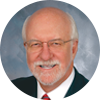I felt the papers were the best I have ever seen, and having just returned from the International Society for the Study of the Lumbar Spine, I encouraged many of the presenters to submit their papers to other conferences in the greater academic community.
Bill Johnson,PhD, professor of economics from Arizona State University, gave a presentation on a 250,000-patient study that was looking at the cost for chiropractic care versus medical care. The study is about half done. It was very satisfying to see the caliber of academics interested in our profession. I had the pleasure of using one of Dr. Johnson's papers to help us obtain an HMO reform bill in Arizona.
We also had a very lively panel discussion on why chiropractors and chiropractic students did not read literature. It was decided that it was a cultural problem originating at the college level. The solution was requiring "journal clubs" and making them a part of the college "culture." It was a very satisfying weekend.
Included, at the conference were, of course, topics such as:
- Evidence-Based Approaches to Practice, Education, and Policy: The Significance and Impact of Chiropractic Research
- Cost and Cost-effectiveness of Chiropractic Care
- Lessons from the Workshops: Chiropractic Theory Revisited
- Defining the Optimum Adjustment and Case-Management for Clinical Research and Policy-Making
This information is all available on the FCER website at www.fcer.org/html/News/RACVI.htm.
What wasn't listed was Dr. Ian Coulter. As an amusing "wrap" of the conference was Dr. Coulter, who entertained the participants with a creative overview, making an analogy between chiropractic research and sex. He used words such as "foreplay" to describe the design of a study, and felt the group had outdone itself in that area; he noted that performing the research, collecting data combined with rigorous studies, and bringing the results together in union was the most satisfying, even rewarding.
Continuing the analogy, Dr. Coulter noted that our shortcoming in research was that where results were quantified, they were not discussed, and that we went to sleep, rather than talked about what had transpired. He continued to say that we didn't tell the outside world what that we didn't tell the outside world what we were accomplishing, and that we had an obligation to get the work out to our own clinical communities and the greater scientific community at large. The indication that he got his point across (though in a rather unorthodox manner) was the sight of conference attendees "cracking up" with laughter.
Arlan Fuhr,DC
Phoenix, Arizona
Click here for previous articles by Arlan Fuhr, DC.





